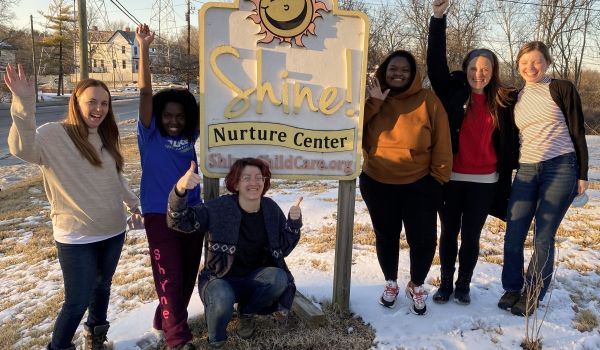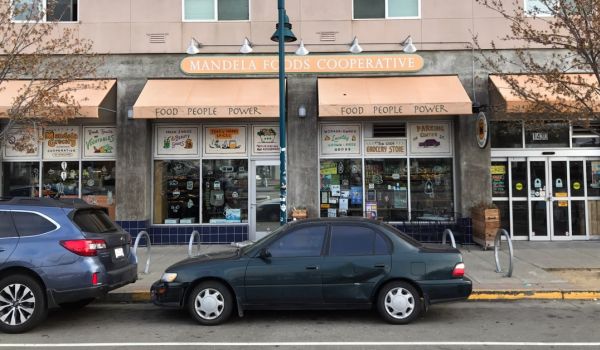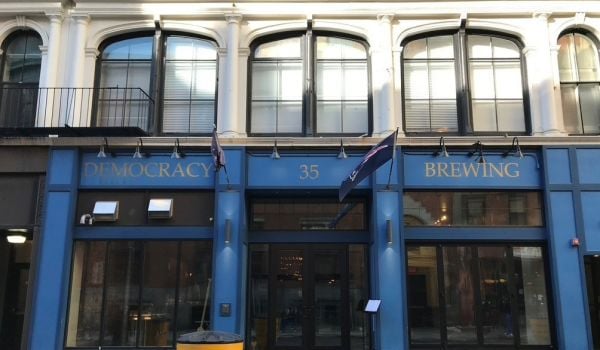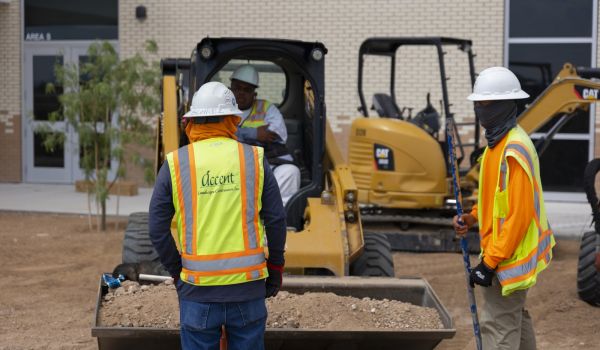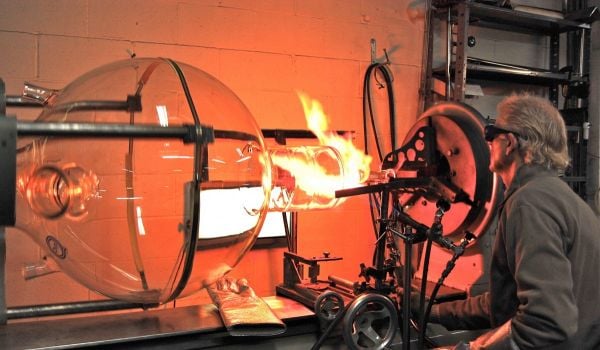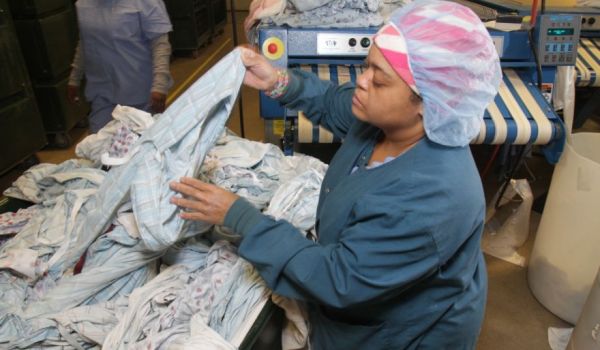Yes, it’s true.
Smartphone users can now download “Co-op Ride,” the ride-hailing app created by The Drivers Cooperative — a ride-hailing company owned and controlled by the drivers themselves (which I profiled back in March), whose profits will go back to drivers. You have to be in New York City to use it, but the company plans to expand eventually — or teach drivers in other cities how to run such a co-op themselves.
Cooperatively-owned businesses might be having a moment.
REI, the popular outdoor goods consumer co-op, emerged from 2020 debt-free, after a decade of “record growth,” and it’s launching “a new grassroots advocacy network in support of a more sustainable and equitable future for the outdoors.”
Land-O-Lakes, the popular dairy company that’s cooperatively owned by farmers, is coming off a record year thanks to pandemic baking, with net earnings growth of 39 percent in 2020 over 2019.
Worker co-ops, still just a fraction of all co-ops and an even smaller fraction of all small businesses, built their own investment network and it made some of its biggest deals yet in 2020.
Co-ops tout a number of benefits for members and their communities. Profits get distributed widely instead of being concentrated in a few privileged owners at the top. If the member-owners are local to a community, those profits circulate in that community instead of being siphoned off to investor pockets in gated communities hundreds or thousands of miles away. For worker-owned cooperatives, workers have control over wages and other workplace policies and business decisions — giving them a sense of dignity that other employers can’t fake.
Being a co-op doesn’t shield a company from making hard choices, but if hard choices like cutting compensation are necessary for the cooperative to survive, a worker co-op can make that decision openly and democratically, as the worker-owners of Union Cab Co-op in Madison, Wisconsin, once did to keep their company alive a decade ago.
The list of benefits for cooperative ownership can go on and on. So why aren’t there more of them? Why isn’t there a cooperative grocery in every neighborhood? Why are the vast majority of small businesses still only using conventional ownership models?
Perhaps one reason is that cooperatives are essentially locked out of the $20-25 billion in federally guaranteed small business loans that private lenders make every year. The Capital for Cooperatives Act, a new bill introduced by newly elected U.S. Senator John Hickenlooper of Colorado, aims to change that. It comes after at least a decade of advocacy from the cooperative business sector.
“We’re glad to see that after all of these years of efforts this finally culminated in this legislative proposal to push this across the finish line,” says Kate LaTour, director of advocacy at NCBA-CLUSA, the main trade association for cooperatively owned business across the country.
The reason cooperatives are locked out of federally guaranteed small business loans is because of one particular requirement for Small Business Administration loans, known as a personal guarantee.
A personal guarantee is basically a piece of paper that authorizes the lender to seize personal assets from the business owner or owners in case the business fails and can’t repay the loan. An owner could lose a car, or maybe a house.
It’s common for lenders to require a personal guarantee even without a federal guarantee — the federal guarantee is there only to cover what borrowers’ personal assets can’t cover.
Under the SBA’s rules for its 7(a) loan program, its largest and primary loan guarantee program that supports $20-25 billion in small business loans a year, an owner with at least a 20 percent stake in a business must sign a personal guarantee for a 7(a) loan. So in case of a default, the private sector banks, credit unions, loan funds or loan companies that make those loans must at least try to seize owners’ personal assets before asking the SBA to pay out the guaranteed portion of the loan, which can be anywhere from 50-90 percent of each loan.
In many co-ops, there are far more than five owners, so nobody has at least a 20 percent ownership stake. Other co-ops may start with fewer than five owners, but may add or change owners quickly. What happens to the personal guarantee situation in either of those cases?
“This has been a longstanding issue,” says LaTour.
There are lenders who make loans to cooperative businesses of all sizes without requiring a personal guarantee. In the late 1970s, NCBA-CLUSA proposed and advocated for Congress to create what is now the National Cooperative Bank, established in 1978 with startup capital from the U.S. Treasury. It became cooperatively owned by its borrowers in 1981. Its borrowers, and today its main depositors, are primarily cooperatively owned businesses and housing co-ops.
Before the pandemic last year, National Cooperative Bank had nearly $3 billion in total assets. Those assets included 295 small business loans, totaling around $90 million. Just about all of those loans are conventional, non-SBA loans to cooperative businesses.
For the most part, National Cooperative Bank just doesn’t use personal guarantees in its small business lending, so it hardly ever uses 7(a) guarantees to support its lending. A handful of times a year, the bank does make 7(a) loans to businesses like Ace Hardware store locations, whose owners are part of a larger merchant cooperative, even as each store location has a conventional ownership model.
But otherwise, the bank just doesn’t use personal guarantees.
“Say you have five current co-op owners,” says R.L. Condra, senior vice president for government relations at National Cooperative Bank. “SBA actually only asks for one of them to sign a personal guarantee, But if all five own the business equally, it’s almost impossible to figure out who signs over your personal collateral while the other four don’t?”
It’s common knowledge among food co-ops and worker-owned co-ops that they can’t access the main SBA loan guarantee programs, according to Condra.
“We’re looking at the worker co-op sector as one of the fastest growing sectors, especially for Black and brown communities in the co-op world, and they can’t get access to these programs,” Condra says.
But the SBA programs would help. The bank says it could make smaller loans, or loans to earlier-stage cooperatives, if it could use those programs.
“It would open up the lending space for co-ops, and also encourage other lending institutions like credit unions to make loans to co-ops,” Condra says. “Starting a cooperative grocery store isn’t that different from a conventional grocery. You have to sign up member-owners who have to pay a fee, then raise money from the private sector, hire a manager, hire employees, get vendors. The SBA looks at a co-op and says they don’t have skin in the game just because no one will sign over their used car [on a personal guarantee]. It’s frustrating.”
During the pandemic, National Cooperative Bank’s small business lending portfolio actually doubled in size. It made around 300 Paycheck Protection Program loans, totaling more than $83 million — because the SBA broke with tradition and it did not require personal guarantees for Paycheck Protection Program loans.
Timing was everything.
In response to years of advocacy from the co-op sector, Congress passed the Main Street Employee Ownership Act in 2018. The law directed SBA to conduct a study exploring alternatives to a personal guarantee requirement as part of its programs. Released a year later, the study rejected any such alternatives.
“They basically doubled down on their existing requirements,” Condra says.
In February 2020, the House of Representatives Committee on Small Business held a two-day series of hearings entitled “Challenges and Benefits of Employee-Owned Small Businesses,” which put the heat back on SBA to figure out how to make its main loan guarantee programs accessible to cooperatives.
A month later, when the pandemic hit and discussions started centering on the federal government’s small business emergency relief programs, it was still fresh on policymakers’ minds that the SBA typically excludes cooperative businesses.
“We really hammered on this issue of the personal guarantee,” says LaTour. “So as agencies were designing these programs, they finally made sure to leave out personal guarantee requirements or else they would effectively be banning businesses from emergency support just because they’re cooperatives.”
Neither the Paycheck Protection Program nor the SBA’s Economic Impact Disaster Loan program or EIDL program of direct SBA loans to businesses required personal guarantees.
It was still a mixed blessing of sorts, as cooperatives across the country still faced loan applications that requested them to list all owners with at least a 20 percent ownership stake in the business. Some co-op industry organizations directed worker co-ops to hand-write owners on the backside of applications or submit extra documentation explaining their ownership structures and listing all worker-owners. Many of those applications took longer to process, or were erroneously denied, forcing some to appeal to SBA.
Ultimately, although the data from SBA is still not considered 100 percent reliable, NCBA-CLUSA estimates that access to SBA’s relief programs throughout the pandemic supported at least 100,000 co-op jobs at approximately 2,300 co-ops, which got a total of at least $1.2 billion in either PPP or EIDL loans. None of those co-ops have access to the SBA’s main lending programs.
After the pandemic, “operating on such an ad-hoc basis is really not a sustainable approach,” says LaTour.
The new bill directs SBA to work with the U.S. Department of Agriculture’s Interagency Working Group on Cooperative Development in order to come up with alternatives to using personal guarantees for cooperatives applying to SBA loan guarantee programs. The USDA has made loans or guaranteed loans to cooperatives in rural areas for decades — mostly agricultural producer co-ops or rural power cooperatives, which are often some of the largest employers in largely rural states like the Dakotas.
And of course, National Cooperative Bank’s own staff have decades of experience lending successfully to cooperatives for the SBA to lean on. The bank’s longest tenured loan officer has been at the bank for 35 years. Over those decades, the bank’s loan officers have had federal banking regulators scrutinizing their practices the whole time, so the SBA would be learning from practices that have already been through that regulatory gauntlet.
“Hopefully we can be a lender that they look to and say okay these guys are successful making loans to cooperatives, let’s see what works and how can we improve the process at the agency?” Condra says. “And we always bring some of our top loan officers into those meetings because the SBA does ask questions about lending practices that only they can answer.”
This article is part of The Bottom Line, a series exploring scalable solutions for problems related to affordability, inclusive economic growth and access to capital. Click here to subscribe to our Bottom Line newsletter.

Oscar is Next City's senior economic justice correspondent. He previously served as Next City’s editor from 2018-2019, and was a Next City Equitable Cities Fellow from 2015-2016. Since 2011, Oscar has covered community development finance, community banking, impact investing, economic development, housing and more for media outlets such as Shelterforce, B Magazine, Impact Alpha and Fast Company.
Follow Oscar .(JavaScript must be enabled to view this email address)





